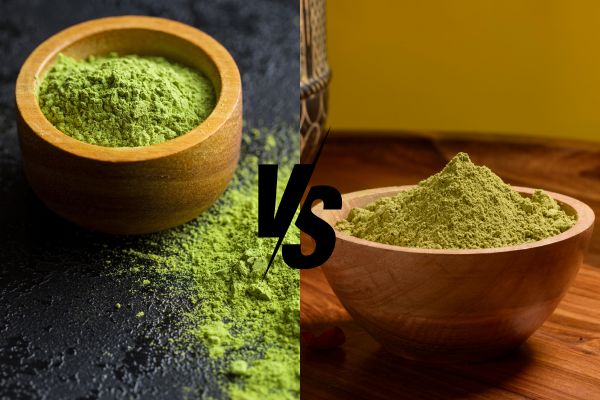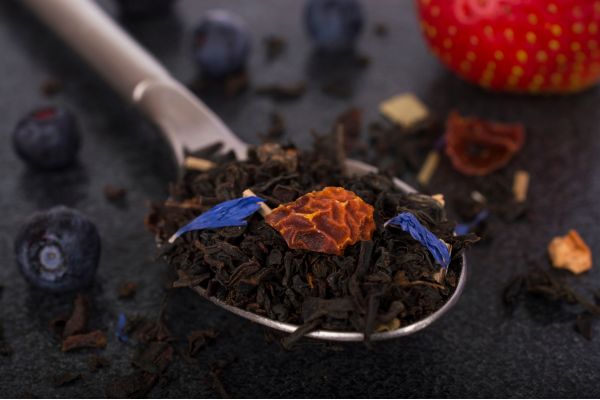“Does Vietnamese lotus tea have caffeine?” is a common question for those researching our traditional unique tea. The fact that lotus leaf tea and lotus has no caffeine. However, The composition of Vietnamese lotus tea has green tea, so it contains caffeine. In spite of containing caffeine, lotus tea of Vietnam can bring many benefits to your health if used properly. Figure out facts and how to get maximum benefits from the tea in this article below!

Contents
1. Why does Vietnamese lotus tea have caffeine?
Basically, lotus tea doesn’t have caffeine, but Vietnamese lotus tea is different. The caffeine in Vietnamese lotus tea comes from dried green tea leaves added to fresh lotus flowers. We call the method of making Vietnamese lotus tea is flower-scented green tea. Artisans will mix tea leaves with lotus stamens then wrap them in the flower petals and lotus leaf. Whereby tea leaves will absorb the floral scent of lotus flowers.

The method makes Vietnamese lotus tea unique and different from lotus teas of other countries where they make infusion teas made from lotus. Another feature to make our traditional tea has a great taste and flavor is the high quality of ingredients. The Vietnamese artisans have been using fresh lotus flowers since very early dawn. Besides, the green tea chosen is often long curled and smoky green leaves with a slightly sharp flavor.
The flower-scented green tea in general and lotus-scent green tea, in particular, is the typical feature of Vietnamese tea culture. In the past, this flower-scented green tea used to be the tea served to the King. In the present, Vietnamese lotus tea is used in the official welcome ceremony for the Head of State and government to visit Vietnam.

To sum up, even though Vietnamese lotus tea contains caffeine, it also brings many benefits for health. We will explain in more detail in the next part of the article.
Click for more information about: How Vietnam make Lotus Tea?
2. Is caffeine in Vietnamese lotus tea good for health?
In fact, Vietnamese lotus tea has a low content of caffeine. A 230 ml cup of this flower-scented green tea may have 25 to 50mg of caffeine, while the same amount of coffee has up to 200 mg.
The caffeine in Vietnamese lotus tea will not be harmful to health if you drink it in the right amount. Altought the amount of caffeine will be affected by the quantity of tea you brew, the time you steep, and the type of green tea used for scenting, 1 – 3 cups of Vietnamese lotus tea per day is still within the safe level for health (under 400 mg caffeine per day for adults).

Besides, if you drink less than 10 grams of Vietnamese lotus-scented green tea per day, you can optimize the benefits of both green tea and lotus flower, as well as reduce the negative impacts of caffeine.
There are more potential benefits that Vietnamese lotus tea can bring to your health as follows:
2.1. Promotes deep relaxation and mental function
The light scent of lotus and green tea may connect you with a deep sense of relaxation, especially to people who love the natural fragrance of lotus flowers. The high vitamin B, zinc, and pyridoxine content in Vietnamese lotus tea also help you de-stress by improving mental function.

2.2. Improves health skin
Lotus-scented green tea from Vietnam contains a range of healthy compounds like polyphenols, catechin named EGCG, vitamin B, C, and small amounts of minerals,… These antioxidants can have various beneficial effects on health, such as providing collagen, healing wounds, brightening up complexion and skin tone.
2.3. Helps lose weight
One cup of brewed Vietnamese lotus tea typically contains 50 – 100 mg of EGCG. Therefore it is a safe level for tea consumption. This amount of EGCG can help avert some chronic diseases, reduce and control inflammation, and lose weight.
Both green tea and lotus are well known for weight loss benefits. The combination may be effective at reducing body fat, particularly the dangerous abdominal fat. Frequently drinking Vietnamese lotus tea may bring great supports for the digestion process, help you lose weight, and maintain a healthy figure.

2.4. Improves memory and decrease fatigue
Containing a safe level of caffeine and amino acid L-theanine, Vietnamese lotus tea not only can keep you stay alert but also help boost brain function, improve memory and decrease fatigue.
2.5. Prevents cardiovascular disease
Lotus leaf tea contains three powerful antioxidants: tannins, flavonoids, and vitamin C. These components can help reduce the risk of stroke and prevent cardiovascular diseases.
2.6. Controls blood pressure
Green tea leaves in Vietnamese lotus tea may boost metabolic rate and increase fat burning in the short term, interfere with the absorption of fats, reduce systolic and diastolic blood pressure. The catechins in tea also effectively control blood pressure.
2.7. Controls blood sugar level
Drinking lotus-scented green tea may help decrease fasting glucose, A1C levels, and fasting insulin levels. Potassium in this tea can assist the body in sustaining a suitable level of sugar and help patients suffering from diabetes.
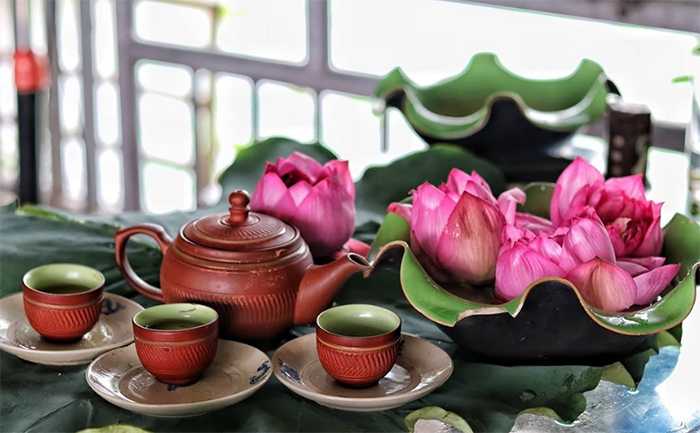
3. How to use Vietnamese lotus tea?
To increase the benefits and reduce the harmful effects of caffeine in Vietnamese lotus tea, you should brew the tea properly
Each tea lover may have a different way of brewing a cup of Vietnamese lotus green tea. In our experience, one set of tea leaves should be brewed for under 2 minutes using medium-hot temperature approximately 70 °C. The tea will produce a light yellow-green liquor with a slightly bitter taste and leave a floral sweetness aftertaste of the lotus blossom. Some fanciers like to brew 3 – 4 times from one set of tea.
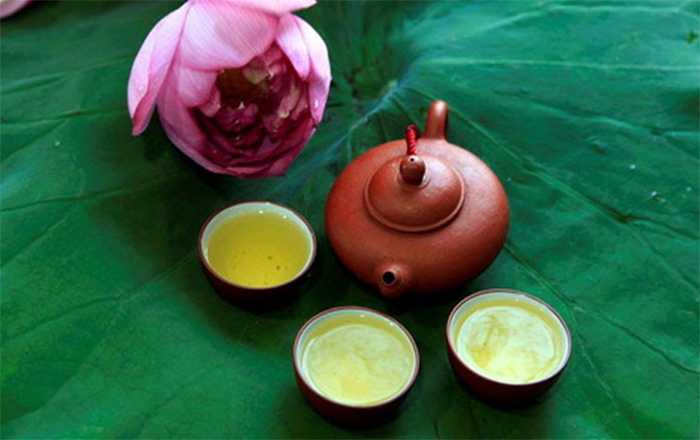
It’s better to drink 1 – 3 sets of lotus tea per day (less than 10 grams of tea leaves total), 30 minutes after eating, and avoid drinking in the evening to prevent side effects of the tea such as reducing iron absorption, increasing anxiety, having a night of poor sleep and causing nausea or headaches.
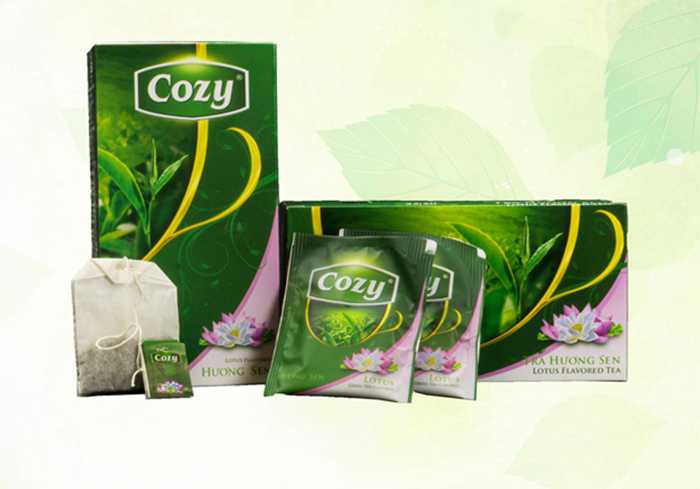
In general, if you use Vietnamese lotus tea properly as instructed, it not only reduces the negative impacts of caffeine but also brings more benefits to your health. We hope you have a satisfactory answer to your concern that is “Does Vietnamese lotus tea have caffeine?”.
If you are looking for a place to buy genuine Vietnamese lotus tea, FGC is the perfect choice for you. FGC provides a variety of Vietnamese lotus tea products including loose tea and tea bags to meet the needs of businesses. Our Vietnamese tea products can be found in supermarkets, grocery stores, and online shops throughout Vietnam.
If you are interested in creating your own lotus tea brand for your market, please feel free to contact us at info@vietnam-tea.com or contact one of our sales for more info.








